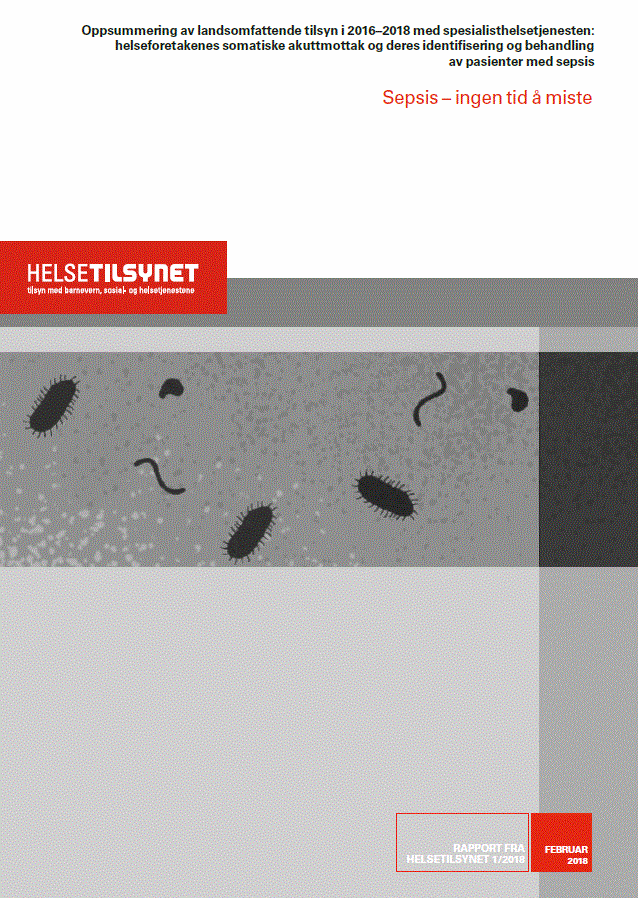No time to loose countrywide supervision in 2016-2018 accident and emergency departments and identification and treatment of patients with sepsis
Summary of Report of the Norwegian Board of Health Supervision 1/2018

The aim of supervision was to investigate whether identification, diagnosis and treatment of patients with sepsis (septicaemia, blood poisoning) and suspected sepsis in accident and emergency departments was adequate. Patients with serious infections, possible sepsis and identified sepsis are amongst the patients who are most dependent on accident and emergency departments functioning as they should: that patients are given correct priority, that sepsis is identified, and that effective treatment is initiated as soon as possible.
Supervision identified deficiencies and errors in all the health trusts that were investigated. A common and serious finding was that patients with life-threatening reduced organ function were put at risk because they had to wait a long time before they received antibiotic treatment. These patients must receive treatment without delay, otherwise there is a risk that they can die.
Delayed examination by a doctor was the problem area in many health trusts. In the accident and emergency departments where patients with sepsis had waited a long time before they had received antibiotic treatment, waiting time for being examined by a doctor was often a contributing factor.
Systematic observation of the patient is important in order to ensure that health personnel detect changes in the patient’s condition without delay. In many health trusts, this was not adequately taken care of.
Generally, in accident and emergency departments, the time taken for treatment to be started was too long. Things could go wrong at several stages: assessing the urgency for treatment (triage), and the time taken for the patient to be assessed by a doctor and for a diagnosis to be made. A risk factor in many cases was a hectic situation in the department, and many things happening at the same time. In the majority of the health trusts, the leaders did not have adequate information about the level of activity in the department. They did not have enough data about whether patients received help quickly enough according to their priority, and how often this was not the case.
The Offices of the County Governors, together with professional auditors, carried out supervision (system audits) on 24 occasions in 19 health trusts and one private hospital. This was followed up by examining patient records eight and fourteen months after the supervision. The last examination of patient records will be carried out in the second quarter of 2018.